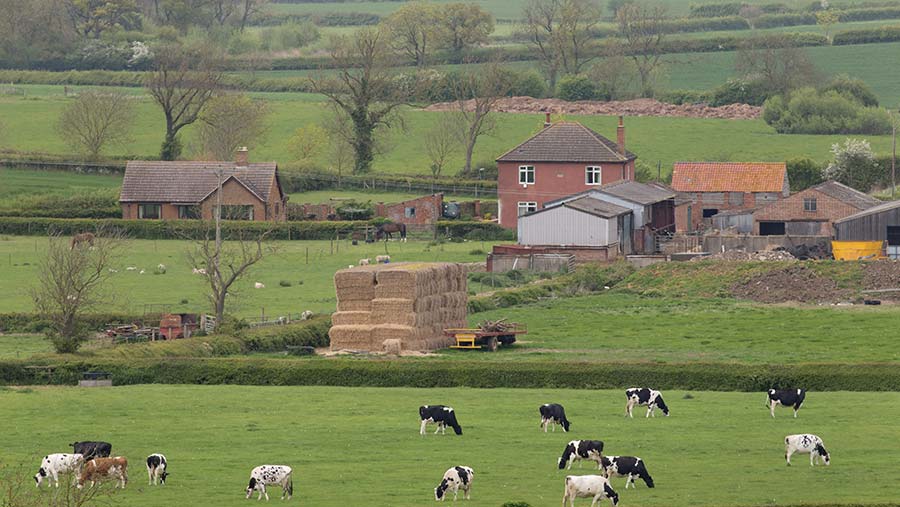How to benefit from additional inheritance tax relief band
 © Tim Scrivener
© Tim Scrivener The rise in value of farmland and rural property means that many people need to review their potential inheritance tax (IHT) liability and ensure they qualify for a recently introduced relief.
Every individual taxpayer has an IHT-free sum, known as the nil-rate band (NRB), of £325,000 applied to their estate on death, meaning that assets up to this limit can be inherited free of the tax.
However, in 2017 an additional allowance called the residence nil-rate band (RNRB) was introduced. It currently stands at £175,000, bringing an individual’s potential total combined IHT-free allowance to £500,000.
See also: Tips for maintaining farming and inheritance tax reliefs
No IHT is due on assets passed to a spouse or civil partner. In addition, an individual’s unused NRB and RNRB can be passed to a surviving spouse or civil partner, effectively doubling their allowance, so that £1m of the survivor’s estate can be passed on IHT-free.
The application of the RNRB mainly benefits estates worth less than £2m, and as it is a relief that some current wills do not capture, a review is well worthwhile, suggests estate planning specialist Georgina Smith of law firm Napthens.
While many farming assets qualify for agricultural property relief (APR), meaning they are IHT free in any event, the farmhouse may not always qualify for full APR relief.
The RNRB can therefore be valuable as it does not rely on any test regarding farming use of the residence.
Tax tips for RNRB consideration
- Review wills regularly, not just for RNRB purposes, but in general – a change in personal circumstances such as marriage can radically alter the legal and tax landscape
- When the value of an estate (or the combined assets of a married couple/civil partners) approaches £2m and residential property is included in the assets, this should be a flag to review plans
- Where an individual’s assets are worth more than £2m, consider measures such as gifting assets during lifetime to reduce the value of estates
- Where wills specify that a child will only inherit on attaining a specific age, this should be reconsidered so far as the family home is concerned
- While changes to IHT have been anticipated for several years, the likelihood of this is thought to be increasing, making a review of wills and succession more pressing
What to be aware of
The RNRB is only available to those who own a property in which they have lived at some point in their lives and where that property is left to one or more direct descendants once the individual has died or, in the case of a married couple/civil partners, they have both died.
Direct descendants for these purposes include children, grandchildren, stepchildren, adopted children and foster children. Importantly, the inheritance must not be dependent upon them attaining a specified age.
“In basic terms, to benefit from the RNRB you need to have an estate worth less than £2m,” says Miss Smith.
“Given the large value of farming estates, this often means it’s no longer tax effective to leave one spouse’s estate direct to the other spouse on the first death, as this could leave the second spouse’s estate at over £2m.”
As a result, the common practice of using mirror wills, with couples leaving their estates to each other, needs to be reviewed.
A useful option now is to gift assets on the first spouse’s death either directly to children or into a trust instead, providing this doesn’t result in an immediate IHT charge, with a view to keeping the surviving spouse’s estate within the £2m value, says Miss Smith.
There are provisions that help preserve the relief for people who have had to downsize and move into less-valuable accommodation or into a care home.
Where an estate is worth more than £2m a taper applies, with the value of the RNRB relief being reduced by £1 for every £2 of value above the £2m threshold.
